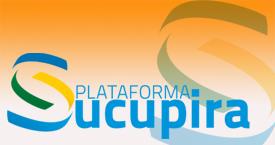Call for Papers
CALL FOR PAPERS FOR THE DOSSIER "APPLICATION OF ILO INTERNATIONAL LABOUR STANDARDS BY NATIONAL COURTS"
The Labor and Human Development Law Journal – Journal of the Regional Labour Prosecution Office of the 15th Region (Brazil) hereby announces the Call for Papers for the special section “DOSSIER: APPLICATION OF ILO INTERNATIONAL LABOUR STANDARDS BY NATIONAL COURTS”, to be published in Volume 8, beginning in January 2025.
This dossier will be coordinated by Professor Dr. ANA VIRGINIA MOREIRA GOMES, Full Professor (on leave) at the Graduate Program in Constitutional Law and at the Law School of the University of Fortaleza (UNIFOR – Brazil), and current Regional Director of the International Labour Organization (ILO) for Latin America and the Caribbean; and by Professor Dr. EVANCE KALULA, Emeritus Professor of Labour Law and Social Security Law at the Faculty of Law of the University of Cape Town (UCT – South Africa) and current Chairperson of the ILO Committee on Freedom of Association.
The international labour standards adopted within the ILO framework constitute a legal system that seeks to universalize minimum, fair, and decent working conditions. The idea of agreeing upon international labour standards is foreseen in the ILO Constitution, in its Preamble:
“And whereas conditions of labour exist involving such injustice, hardship and privation to large numbers of people as to produce unrest so great that the peace and harmony of the world are imperilled; and an improvement of those conditions is urgently required, for example, by [...] regulation [...]”
The rationale underpinning these standards is intertwined with the very origin of International Labour Law. If we look back to the period preceding the creation of the ILO in 1919, we can identify two rationales that drove the pursuit of legal labour protection. First, a rationale based on the recognition of the human dignity of workers, regardless of nationality. The Preamble to the ILO Constitution refers to a humane working regime as an ideal. Second, the rationale that work is not a commodity, as stated in the Declaration of Philadelphia (1944).
Both rationales remain the ratio legis of ILO standards. However, more than a century after its founding, other attributes can be added. First, their legitimacy: ILO standards arise from a process of social dialogue held within the tripartite structures of the organization in a multilateral forum. Second, although developed through negotiations among tripartite representatives of the member States, the drafting of the standards is grounded in extensive technical work by the International Labour Office. These standards are based on evidence collected and analyzed by the ILO concerning the world of work, as well as national and regional experiences in designing and applying labour policies. The normative function thus constitutes one of the Organization’s most important contributions to global labour governance.
There is a notable commitment to the international labour standards system in the Americas: 21% of all valid ratifications worldwide come from this region. This places the Americas in a prominent position, ranking second globally regarding the average number of conventions in force per country—with an average of 40 ratified conventions. For example, Brazil, as a founding member of the ILO, has ratified 98 of the 191 international labour conventions, of which 66 are currently in force in the country. Experience also shows that ratifying conventions is only the initial step: their implementation in legislation and practice through social dialogue can facilitate the effective fulfilment of the rights they enshrine. This can be a long and complex process that may take various forms (state regulation, social dialogue, collective bargaining, and ILO technical assistance, for instance).
In this context, the dossier at the core of this call for papers focuses on a topic that is central to the ILO’s normative system: the application of its standards and principles by national courts. This discussion is driven by the need to generate and disseminate knowledge about international labour standards and their application. The intended approach assumes a broad analysis of the relationship between international labour law and domestic law, as well as the role of courts, judges, and legal practitioners. Specific topics may include the analysis of national systems for incorporating international labour standards. Submissions addressing a particular country’s experience or regional approaches are welcome. Additionally, the dossier invites contributions that examine, among other related topics, landmark court decisions demonstrating how ILO standards and the concept of Decent Work have been integrated into domestic jurisprudence, along with broader themes such as the regulatory context for applying international standards and legal education in international labour law.
Submission Guidelines and Deadline
Only original, unpublished scientific articles that strictly comply with the submission conditions outlined in the Submissions and Author Guidelines sections available on the RJTDH website will be accepted for review.
The submission period opens on May 15, 2025, and closes on September 30, 2025 (extended deadline).
All submissions will undergo the journal’s rolling peer-reviewed editorial process—that is, approved articles will be published on a rolling basis, before the closure of the special section. As a rule, submissions will be evaluated under the double-blind peer review system, with reviewers holding equal or higher academic credentials than the most senior author of the submitted article.
From May 2020 (Issue 3), the Labor and Human Development Law Journal will adopt the rolling pass procedure. The rolling pass is the publication of articles as they are approved. One volume is published annually, closed at the end of December, with no more issues or semiannual periodicity.














